
Project Team
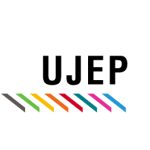
Jan Evangelista Purkyně University in Ústí nad Labem (UJEP)
UJEP focuses on quality education, research and innovation, cooperates with regional partners and actively contributes to the development of the Ústí Region and the entire Czech Republic. It has experience in dealing with SMART issues.
More
Description of the institution
UJEP is a public university founded in 1991. It offers a wide range of study programmes in the fields of natural sciences, engineering, humanities, social sciences, arts and pedagogy. UJEP focuses on quality education, research and innovation, cooperates with regional partners and actively contributes to the development of the Ústí Region and the Czech Republic. UJEP has experience in dealing with SMART issues (projects Smart City – Smart Region – Smart Community, Smart countryside: sustainable rural development using Smart solutions and Municipalities talking about water) and UJEP is the main coordinator of the CESMOD project.
Smart city project, Smart Rural Methodology, MZE Smart Rural Methodology, municipalities talk about water
Team
- Ing. Mgr. Hana Brůhová Foltýnová, Ph.D., Principal Investigator
- doc. PhDr. RNDr. Jan Daniel Bláha, Ph.D.
- Bc. Ivana Böhmová
- PhDr. Karolína Dobiášová, Ph.D.
- Ing. Marek Hekrle, Ph.D.
- doc. Ing. Petr Hlaváček, Ph.D.
- Mgr. Vladan Hruška, Ph.D.
- Mgr. et Mgr. Anika Chalupská
- Mgr. Radomíra Jordová, Ph.D.
- Bc. Barbora Kloubková DiS.
- Ing. Miroslav Kopáček, Ph.D.
- Ing. Jiří Louda, Ph.D.
- Ing. Jan Macháč, Ph.D.
- Ing. Petra Olšová, Ph.D.
- Ing. Michal Pácal
- Mgr. Kristýna Rybová, Ph.D.
- Ing. Tomáš Siviček, Ph.D.
- doc. Ing. Jan Slavík, Ph.D.
- Mgr. Danuše Strnadová
- Ing. Michal Struk, Ph.D.
- Ing. Tomáš Sýkora, Ph.D.
- Ing. arch. Martina Sýkorová
- Ing. et Ing. Patrik Šimůnek
- Ing. Alice Vaverka Králiková
- Ing. Lucie Vávrová, Ph.D.
- PhDr. Michaela Veselá Hiekischová, Ph.D.
- Mgr. Petr Jíra, Ph.D.


Czech Technical University in Prague, UCEEB
CTU UCEEB is an interdisciplinary research centre focusing on construction, energy and sustainable innovation in a wide range of other fields.
In addition to the UCEEB, experts from the Faculty of Civil Engineering (FSv) and the Faculty of Information Technology (FIT) are involved. The FSv of the CTU, through the Department of Municipal Water Management, has know-how in the field of smart water management in municipalities, protection of water resources, water pollution, etc.
More
Description of the institution
ČVUT UCEEB is an interdisciplinary research center focused on construction, energy, and sustainable innovation in a wide range of other fields. Since 2014, the center has implemented over 1,200 projects. The center employs a total of approximately 200 people, including approximately 120 top applied research workers. The urban innovation program deals with municipalities of all sizes, and cooperation has been implemented with more than 50 cities and municipalities of all sizes. In the field of territorial innovation, UCEEB has created a number of outputs, such as: Water in the City, Catalog of Uses Let's recycle buildings (in Czech), SBToolCZ certification methodology, Public Space Planning Methodology, Manual for Energy Management in Municipalities and Cities in Their Buildings and on Their Land, educational course on energy-positive neighborhoods, and specific applications such as the Wave micro-cogeneration power plant, the bio-solar roof in Žďár nad Sázavou, and smart concrete furniture for SARAP Prague 3. In the field of automation and municipal data management, with a focus not only on energy, UCEEB has implemented projects such as Smart City Compass, SPARCS, ASCEND, GLocalFlex, Technology Transfer for Smart Prague, and many others.
In addition to UCEEB, experts from the Faculty of Civil Engineering (FSv) and the Faculty of Information Technology (FIT) are involved.
Team
- Ing. Mgr. Michal Kuzmič
- Mgr. et Mgr. Wojciech Belch
- Mgr. Klára Zámečníková
- Ing. Vít Janovský
- doc. Dr. Ing. Ivana Kabelková
- doc. Ing. Pavel Kordík, Ph.D.
- Ing. Stanislav Kuznetsov, Ph.D.
- Ing. Jiří Novotný
- doc. Ing. Tereza Pavlů, Ph.D.
- Mgr. Daniela Stolařová
- doc. Ing. David Stránský, Ph.D.
- Ing. Marek Suchánek, Ph.D. et Ph.D.
- Ing. Tereza Valentová
- Ing. Jana Vanická Civínová, MSc.
- Ing. Jana Svobodová

Prague University of Economics and Business (VŠE)
VŠE has long been involved in educational activities across the Czech Republic with the aim of bringing the SMART concept closer to all actors within the quadruple helix, across the topics of the individual components so that a holistic approach is maintained. They have been cooperating with virtually all project partners for a long time.
More
Description of the institution
The members of the research team have experience with national and international research projects, including the most prestigious ones such as Horizon, with the preparation of strategic and methodological documents, both at the local (for municipalities or LAGs) and national level (co-authorship directly on the Smart Cities Concept and its Implementation Plan). Some of them are active in the bodies of LAGs or are members of the Smart Cities Working Group at the Ministry of Regional Development and have participated in projects directly implemented for the Ministry of Regional Development to support the implementation of the SMART concept in the Czech Republic. Furthermore, they have been involved in long-term educational activities across the Czech Republic with the aim of bringing the SMART concept closer to all actors within the quadruple helix, across the themes of the individual components so that a holistic approach is maintained. They have been cooperating with virtually all project partners for a long time.
Team
- Lucie Nencková, Ph.D., MBA
- Ing. Pavel Černý, Ph.D.
- Mgr. Miroslav Rončák, Ph.D.
- Ing. Kateřina Mácová, Ph.D.
- Ing. Lucia Kozák Csajková
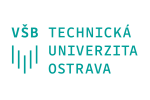
VSB – Technical University of Ostrava (VSB-TUO)
VSB-TUO has many years of experience in education, dissemination of good practice and cooperation with application guarantors, both on the side of state and local government and in cooperation with industrial partners and innovation.
More
Description of the institution
VSB -TUO has a long experience in education, dissemination of good practice and cooperation with application sponsors, both on the side of state and local government and in cooperation with industry. The project will make use of the background and experience from the supporting activities of the SMARAGD project, which emphasises the link between cutting-edge research, development and innovative entrepreneurship. The department has also been involved in a number of international projects, e.g. Interreg Europe Rures, or Interreg Europe Central Skills+.
VSB -TUO has full support of technical and knowledge equipment in the field of SMART technologies, support activities are provided by a separate department of the public university. The department is well technically equipped and has access to audiovisual equipment, the possibility of using the Supercomputer for simulating certain situations and last but not least, it processes data.
Team
- prof. Ing. Dagmar Juchelková, Ph.D.
- prof. Dr. Ing. Dluhošová Dana
- prof. Dr. Ing. Zmeškal Zdeněk
- Ing. et Ing. Dvořáková Barbora

Masaryk University, Faculty of Informatics (FI MUNI)
FI MUNI has been researching Smart Cities at the international level for more than 6 years in the Service Systems Laboratory. In practical application, he collaborates in the design of implementation materials for the SMART concept, analytical and evaluation materials.
More
Description of the institution
The Faculty of Informatics of MU brings together the DISA, Sitola and NLP expert groups in this project under the leadership of the Service Systems Laboratory (SeSLab). Laboratory of Service Systems has been conducting research into Smart Cities since 2018. In terms of practical application, it collaborates on the preparation of implementation materials for the SMART concept and cooperates in research activities in this area with the University of Salerno in Italy, the Polytechnic University of Bucharest, and the Deggendorf Institute of Technology. A very important partner in the field of AI application research in services is ISSIP, led by Jim Spohrer, one of the founders of Service Science, which forms the theoretical and methodological framework for the entire research project. The Faculty of Informatics, through Leonard Walletzky and Jaroslav Zelený, collaborated on the SMOČR project "Strategic Framework of the Union of Towns and Municipalities in the Area of Smart City." The aforementioned employees are the authors of the chapter on ICT and also the appendix on ICT methodology for Smart City MMR in 2018.
Group CODA from the DISA laboratory draws on more than twenty years of experience in processing and searching complex data. In its current collaboration with the University of Kiel on the GAČR project "Learned Indexes for Similarity Searching," it is researching and applying a new type of data structure that uses machine learning models to accelerate searches in documents, images, and proteins.
The Sitola Laboratory has many years of experience in planning using artificial intelligence and operational research methods, the foundations of which were laid when the Faculty of Informatics was established. Group Planning, scheduling, and transportation has expertise in solving a wide range of practical planning problems, including large-scale network problems, logistics, and planning in the context of smart cities.
Students and staff of the Natural Language Processing Centre (NLP) have created many tools for processing texts and their enormous collections over more than 25 years of history. Many of these are used in workplaces around the world. Recently, the center's focus has shifted to large language models (LLMs) – creating models, fine-tuning them for specific tasks, or creating applications that use the models. In doing so, it continues to build on its expertise in the efficient processing of large text data, which is important for LLMs.
Team
- Ing. Leonard Walletzký, Ph.D.
- doc. RNDr. Vlastislav Dohnal, Ph.D.
- doc. Ing. Václav Oujezský, Ph.D.
- Mgr. David Procházka
- RNDr. Jaroslav Ráček, Ph.D.
- doc. Mgr. Hana Rudová, Ph.D.
- doc. Mgr. Pavel Rychlý, Ph.D.
- Mgr. Zuzana Schwarzová
- RNDr. Josef Spurný, Ph.D.

Innovation Center of the Ústí Region (ICUK)
ICUK has extensive experience with the Smart City concept within the Smart Accelerator for Ústí nad Labem Region III, as this project focuses on supporting the innovation environment and smart specialisation in the region.
More
Description of the institution
ICUK has extensive experience with the Smart City concept within the Smart Accelerator for Ústí nad Labem Region III, as this project focuses on supporting the innovation environment and smart specialisation in the region. Through the Smart Accelerator project, ICUK supports the implementation of innovative solutions and technologies that contribute to the development of sustainable and efficiently managed urban areas. This experience includes cooperation with representatives of cities and municipalities, specialized organizations (e.g. Data Centre of the Ústí nad Labem Region, Energy Centre of the Ústí nad Labem Region - development of the PORTABO data platform and inclusion of cities and their contributing organizations in the regional energy management, etc.), enterprises and educational institutions in the implementation of smart technologies that improve the quality of life of residents and the efficiency of urban services in the Ústí nad Labem Region. Other topics and projects in which ICUK is/ was active include ICUK Digital Innovation Hub, DIGIT-ME project, GREENE 4.0, Smart Countryside.
Team
- Ing Zbyněk Novák
- Petr Štastný
- Simona Fronc
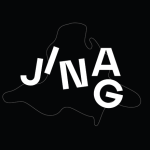
South Moravian Agency for Public Innovation (JINAG)
The mission of the JINAG is to help public administration introduce new technologies, services and processes by connecting stakeholders, pilot projects and proof of concepts to improve the lives of citizens with a positive impact on the environment.
More
Description of the institution
The JINAG agency was founded in 2022 by the South Moravian Region and Brno universities - Masaryk University, Brno University of Technology and Mendel University in Brno.
Since its establishment, the Agency has been very successful in drawing EU funds from the LIFE, Interreg Danube, Interreg Europe, Horizon Europe programmes. It is a member of several international consortia in innovative projects, e.g. ERRIN (European Regions Research and Innovation Network), it is a member of the Friends of New European Bauhaus platform and others.
JINAG actively contributes to the region's adaptation to climate change and supports sustainable development efforts with regard to energy efficiency and environmental responsibility. It helps municipalities to use renewable energy sources and reduce energy consumption. Seeks and implements pilot projects focused on energy efficiency and climate change adaptation and mitigation.
In the field of social and health services, he is the initiator of the expansion of assistive technologies among social service providers and people with reduced self-sufficiency. It increases the awareness of residents about available services, promotes the use of modern technologies in the home environment and focuses on communication between social and health service providers through electronic tools.
It is intensively introducing elements of participatory planning into regional subsidy programmes and the preparation of investment projects. It involves residents and stakeholders in decision-making on the development of municipalities and cities. The participatory process streamlines all activities across all domains and influences the quality of outcomes.
It focuses on the digitalisation of public administration processes, increasing staff competences, creating a knowledge centre for public administration and ensuring public safety.
Despite its relatively short existence, the agency has managed to be active in the region, identifying pioneers in public administration and connecting them with research organisations, businesses and international partners.
Previous experience of JINAG employees includes managing a large state innovation and investment agency CzechInvest, project management within CEITEC, working in the JIC team, mayoralty and serving in municipal councils, etc.
Team
- Ing. Patrik Reichl, MBA
- Ing. Eva Sedláčková
- Ing. Nela Kadlečíková
- Bc. Petr Navrátil
- Mgr. Marie Indráková
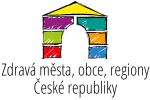
National Network of Healthy Citie (NSZM)
NSZM is a professionally focused association of 140 towns, municipalities and regions, actively working in the Czech Republic for 30 years. The main topics are mainly methodological and implementation support for strategic work and participation at the level of municipalities and regions with an emphasis on sustainable development, health and quality of life. The topics of data work, innovation and SmartCity/region are an integral part of NSZM activities.
More
Description of the institution
The National Network of Healthy Cities of the Czech Republic (NSZM) is a professionally focused association of 140 cities, municipalities and regions, actively working in the Czech Republic for 30 years. The main topics are mainly methodological and implementation support for strategic work and participation at the level of municipalities and regions with an emphasis on sustainable development, health and quality of life. The topics of data work, innovation and SmartCity/region are an integral part of NSZM activities. It actively participates in the Smart Cities Working Group at the Ministry of Regional Development, and has long been cooperating with the Ministry of Regional Development on the Database of Strategies and other topics. Apart from field work for the municipalities/regions themselves, it focuses mainly on networking, sharing good practice, connecting municipalities with professional partners. It operates a website Good practice professional website with indicators and methodologies Mozaika and a number of other tools applicable to the SmartCity theme. The NSZM has a number of collaborating partner organisations abroad and is internationally certified by UN-WHO. As an application guarantor, the NSZM, in cooperation with other partners, is able to effectively transfer the SmartCity/region theme to the local level and at the same time provide feedback from practice.
rom EU structural funds, the State Environmental Fund of the Czech Republic, sources of the Ministry of the Environment of the Czech Republic or the Ministry of Regional Development of the Czech Republic, EEA Funds, EU community programs (Horizon Europe, Intelligent Energy, etc.), etc. – more here. None of these projects overlap thematically or financially, rather they will build on each other methodologically.
Team
- Ing. Petr Švec
- Mgr. Radka Švíková
- Mgr. Jitka Boušková
- Mgr. Blanka Dvořáková
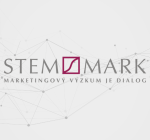
STEM/MARK, a.s.
STEM/MARK is a research agency that has been providing all areas of marketing research for clients from various industries since 1994.
More
Description of the institution
STEM/MARK is a full-service research agency that has been providing all areas of marketing research for clients in a variety of industries since 1994.
STEM/MARK carries out 400 research projects annually. It uses its own network of interviewers, cati studio, and survey software. It is one of the founders of the National Sample.
STEM/MARK is thus a reliable source of intelligent data, which is generated on the basis of thorough analyses and carefully implemented projects. Our goal is to provide clients with the support they need to make key decisions that are important to their growth and success. At the same time, we strive to ensure that our insights contribute to improving the quality of life in our society.
STEM/MARK's experience in researching the use of smart tools and technologies is primarily for the private sector.
Examples of research:
Interest in using various smart applications, satisfaction and benchmarks (banks, energy, transport, goods distribution, tourism, etc.), optimization of smart tools and applications (e.g., UX tests of application users), use of various "smart technologies" for research innovation and their application (e.g., development of the "Travel Tracking" application, the "Time for Health" application).
Team
- Mgr. Ondřej Vácha
- Ing. Tomáš Rychecký
- Ing. Iva Ryznerová
- David Rozhon

Obce v datech, s.r.o.
Based on objective data, we compare the quality of life in 206 municipalities. We track trends, predict changes, and help cities make strategic decisions.
More
Description of the institution
The company Obce v datach, s.r.o. was established as a purpose-built start-up for the implementation of a specific product - the development of a quality of life index and related derivatives through the automatic processing of big data. Our team is composed of experts who have many years of experience in the public sector, consultants with experience from leading consulting firms and young enthusiastic analysts in the field of economics, statistics and demography.
Team
- Ing. Jan Havránek, Ph.D., MBA, MPA
- RNDr. Ondřej Krejčí
- Mgr. Jan Pavelka, Ph.D.
- Ing. Petr Kamínek


